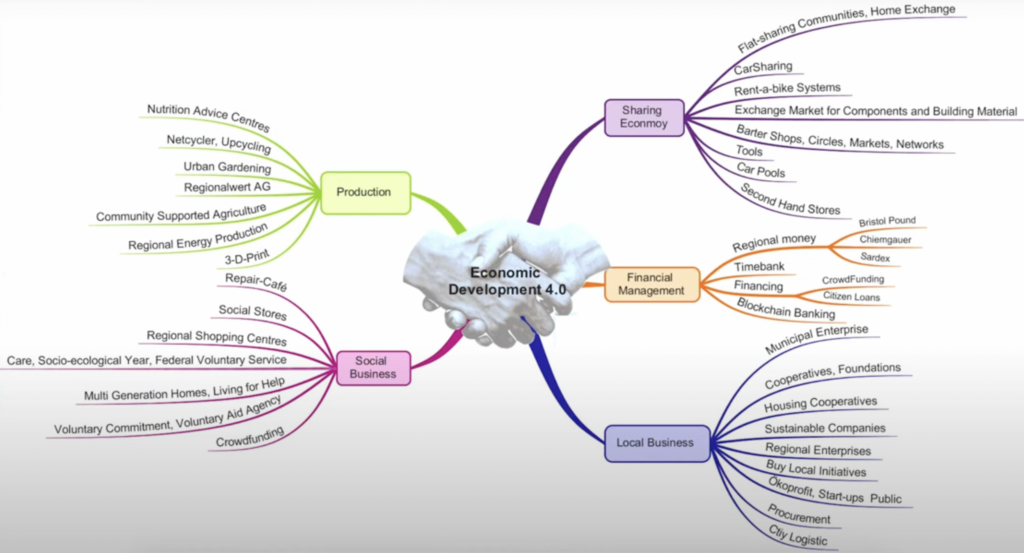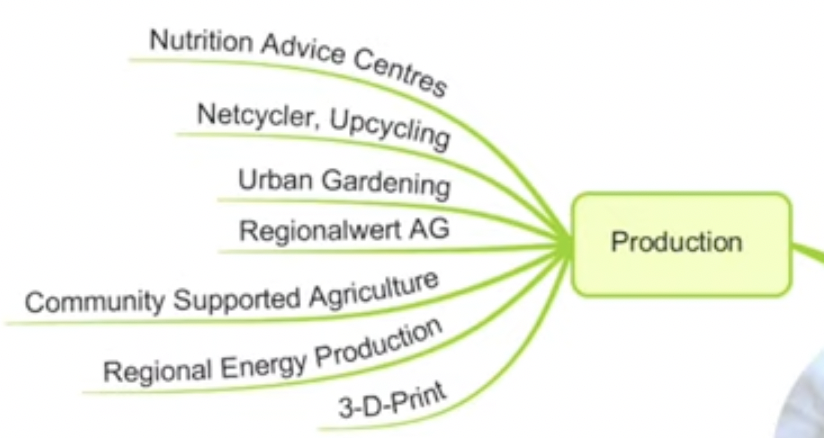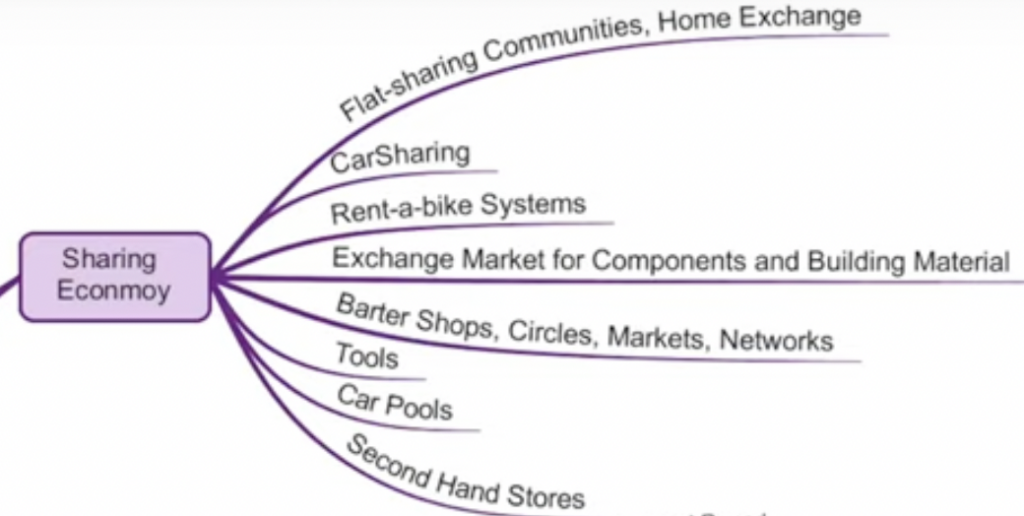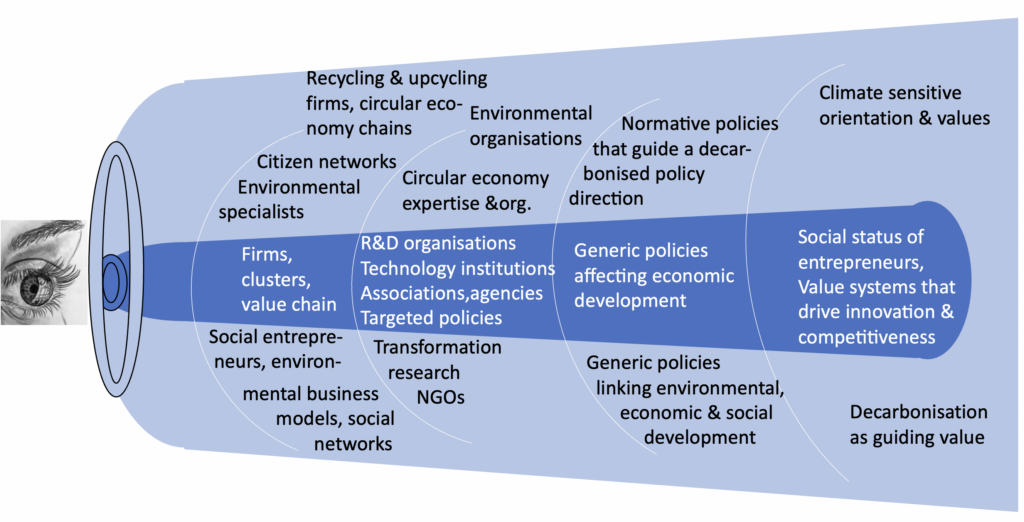Sustainable Future Cities, Towns and Communities (II)
We started the first blog on the Economic Development 4.0 approach (hereafter referred to as ED 4.0) with Paul Watzlawick’s story about the man looking for his key. We highlighted the difference of this approach from traditional fields and called for a broader perspective and a new search process in the field of local and regional economic development. In this blog, we delve deeper into the areas of experimentation that the ED 4.0 approach emphasizes as well as how other economic development organizations and we at Mesopartner can broaden our perspective and rethink our practice.
Figure 1: The requirements to open up our perspective

In Germany the ED 4.0 approach is already being implemented in various cities and municipalities of different sizes (including Osnabrück, Wuppertal, Witzenhausen). Experiences from different EU countries were evaluated to define the experimental fields of the approach.
Figure 2: Five experimental fields of the Economic Development 4.0 approach

The five fields of experimentation of the ED 4.0 approach
Figure 2 shows the five fields of experimentation and examples of the implementation of possible initiatives.

In production: The following experiments have been supported here: strengthening locally manufactured products and regional value chains, supporting circular economy approaches both in value chains and in companies and households through upcycling (reuse/repurpose), netcycling (swap), reuse (reuse/different use) and recycling (reuse). The promotion of appropriate enterprises plays a role here. The same applies to agriculture, where new solidarity-based and local approaches are strengthened. Local and regional energy production approaches are also supported in this field. Local instruments for this include strengthening local supply and purchasing services, “Buy Local” campaigns, local sales platforms, and also urban gardening or community gardening projects, the promotion of renewable energies, wind and solar parks, for example through renewable energy cooperatives and the promotion of local shareholders in the energy park or in a regional agricultural producer group.

Social enterprises: Social enterprises do not focus on profit but on solutions to social problems. Common good goals and support services provide orientation here. Examples include repair cafés where items are repaired by citizens, village shops to secure local shopping opportunities, food-sharing initiatives to consume unused food, shared housing projects, parenting initiatives, for example for child care, and advisory services for special target groups (e.g. poorer target groups, refugees, etc.) have also already been implemented in this field.

Sharing: The concept of the sharing economy comes to mind here, but also goes beyond it. Sharing as a community-building element is essential, not just as a purely commercial element. Examples are car sharing, bike sharing, tool sharing between households as well as second-hand shops and second-hand goods trade.

Regional money to strengthen regional purchasing, production and service cycles. There are many examples of this in the EU.

Strengthening local and sustainable businesses: A wide range of different enterprises is possible here. These include the promotion of innovative companies and start-ups that contribute to solving societal and environmental challenges, and also businesses that strongly consider the sustainability of their business models, as well as alternative and community-oriented forms of organization, such as cooperatives and foundations, which can also be economically oriented but used for the common good first.
Many of these approaches have not been newly invented but have already emerged in recent decades on the basis of civil society development initiatives, alternative movements and visionary approaches. In developing countries too, there are a number of approaches related, for example, to the informal economy that have a similar orientation. However, these approaches are often dismissed as social approaches, their real developmental power is often not taken seriously, and they are also not integrated into formal development structures and approaches. Many local economic development and policy actors still do not see pushing such approaches as their role today. However, with such a wider understanding of innovation and local economic development, broader innovative opportunities can be discovered, promoted, linked and used.
What does this mean for our own work in economic development?
From our point of view, we must not treat economic, social and ecological innovations in parallel, but learn to discover them, strengthen them and integrate them into strategies, analyses, projects and programs.
What does this mean for our work today? Figure 3 shows the focus that economic development and often we as Mesopartner have taken in the past. Despite our systemic lens, we predominantly saw these actors as shown in Figure 3.
Figure 3: The perspective of traditional local economic development

If we wish to combine local dynamics in the future and strengthen innovative experimental fields for local transformation processes with citizens and businesses, the involvement of further businesses and civil society actors in the transformation processes will be essential (see Figure 4).
This requires us to abandon the tunnel view, scan the environment more broadly and notice and discover new important players. The following questions will help us on this journey of discovery:
Figure 4: Open up new perspectives, discover new relevant players

- What companies are important in the circular economy and in sustainable production, recycling, upcycling and netcycling, but which are usually ignored by us? What opportunities are there to strengthen the aspects of circular economy within value chains as well as to strengthen more recyclable products? Who and what are markets for these products?
- Which companies in the region are already pursuing innovative and sustainable business models from which we can learn? Which committed social enterprises contribute significantly to the common good? Who can we learn from to promote these forms of business and start-ups locally?
- What sharing models already exist or have potential in the market and in the community? What concepts already exist somewhere else and could be promoted here?
- Who are change agents in the location not only at the business level but also in the social, educational and environmental fields? We often ask: Who are the outliers on the ground (link to blog systemic insight), i.e. those who behave differently and implement new things despite adverse circumstances?
- Which people and groups are the promoters of new citizens‘ initiatives with the aim of joining forces for the common good and finding solutions?
- Which local and regional organizations such as civic networks, environmental organizations, NGOs and implementers at the local level are active and trying out new initiatives and experiments to increase local resilience? How are they supported and how can they be strengthened? What business models could also be developed in this field?
- What are the framework conditions for businesses that have the common good and sustainability in mind? (How) are they supported? Where do they get their knowledge and inspiration from? Are they involved in networks in the region or beyond the region? What status do they enjoy in the region? Are their activities known and appreciated? Can initiatives be supported to grow?
- How can the wider perspective be opened together with the local economic development actors? Is it possible to organize workshops and contests around new ways of carrying out initiatives in this direction?
The perspective in Figure 4 above summarizes our perspective, which we must also integrate into our approach of innovation and development analysis and promotion activities. It illustrates the consideration of different actors at different levels within the framework and again creates a link to our systemic understanding of innovation and development promotion: It is
- At the micro or business level not only the entrepreneurs and value chains that are relevant but also additional entrepreneurs and citizens who add value, innovate or pioneer outlier characteristics within or outside the dominant value chains and business networks.
- At the meso or support organizational level where not only traditional business support agencies, technology centres and service organizations for companies and clusters but also environmental associations, social and civil society organizations and small actor networks are trying out sustainable and innovative development approaches and models, service providers for environmental and sustainability solutions, etc.
- The analysis of current and potential funding programs and targeted promotion policies (we call them “meso policies”) that are not solely focused on innovations in the economic sector, but also promote innovations in the area of the common good or also include social and environmental innovation promotion.
What is exciting about the ED 4.0 approach is that, on the one hand, it opens up the perspective for further „pioneers of change“, who in the past have often not been sufficiently perceived as significant players. At the same time, the ED 4.0 approach creates a space in which such commitment and approaches can first grow and then be continuously supported and integrated.
To end with Paul Watzlawick’s story that was related in the first blog: if we want to make use of the energy for transformation in a place, we need to search for the players who are not yet in the cone of light of our street lamp. These players hold new discoveries and innovation potential that are necessary for transformation of the places we work in.
Guido Zakrzewski und Frank Waeltring
More information
- Link to the first blog on the Economic Development 4.0 approach
- Link to the english Videocast from Mesopartner with Jana Rasch from the Wuppertal Institute about the Economic Development approach 4.0
- Website : Wirtschaftsförderung 4.0 Wuppertal Institut
- Interview and Videocast with Dirk Messner, Director of the Federal Environmental Agency about the role of cities and the rural country sides for climate change
Literature
Kopatz, Michael (2016): Ökoroutine, Damit wir tun, was wir für richtig halten, Wuppertal Institut.
Schneidewind, Uwe (2016): Die große Transformation, Eine Einführung in die Kunst gesellschaftlichen Wandels, Frankfurt am Main.
